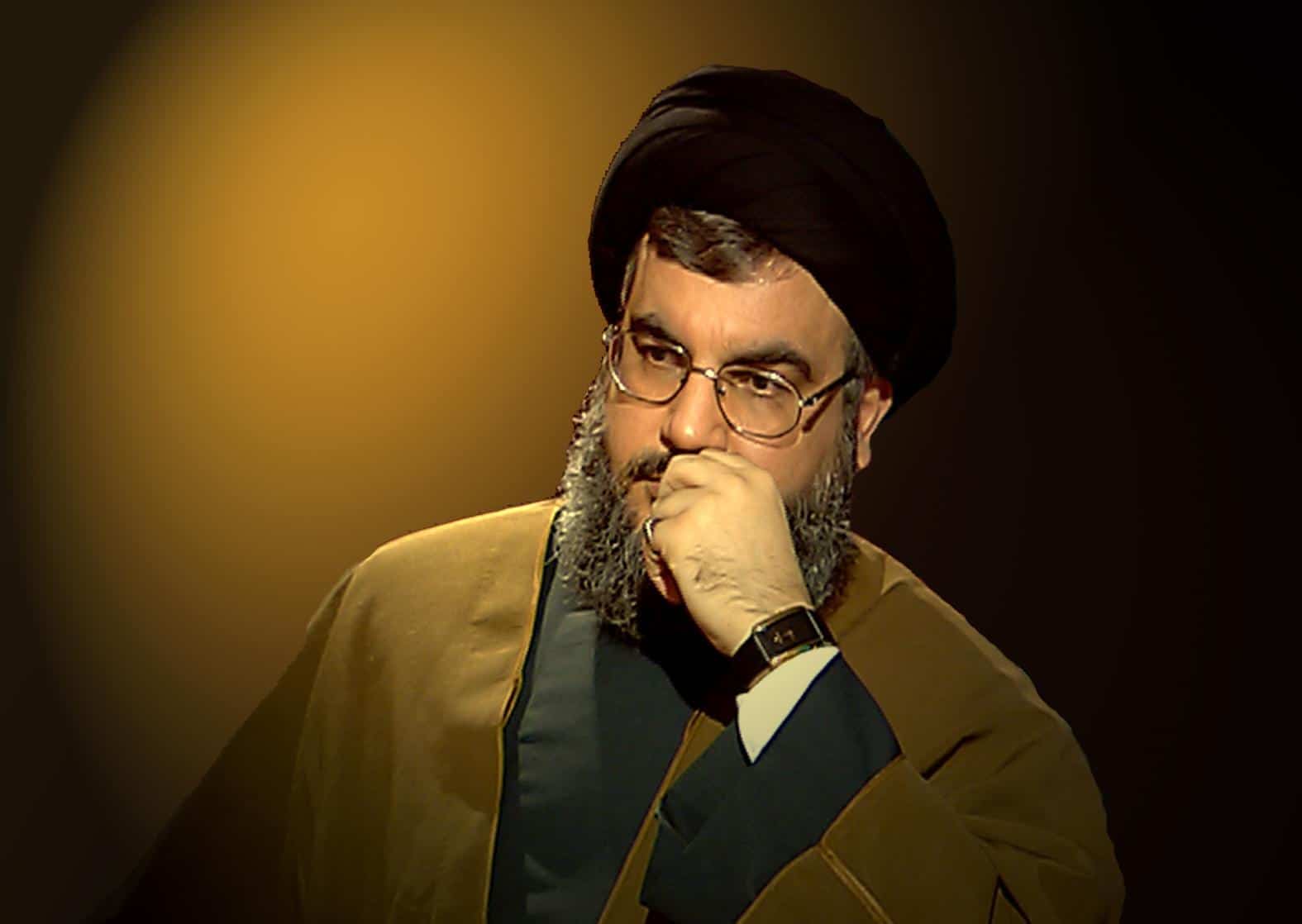
Over the past two decades, Hassan Nasrallah, secretary-general of the Lebanese Shiite group Hezbollah, has emerged as a deeply influential figure in Middle-Eastern politics. Charismatic, intelligent and politically astute, he is revered to an extent never before achieved by a political leader in the region.
Since assuming leadership of Hezbollah in 1992, after his predecessor Abbas al-Musawi was assassinated by Israel, Nasrallah has been a driving force behind the group’s political and military success.
Born in 1960 in East Beirut’s Bourj Hammoud neighbourhood, Nasrallah, the oldest of nine children, aspired to religious leadership from a young age. After the outbreak of civil war in Lebanon in 1975, his family fled to its ancestral home in the southern Lebanese village of al-Bazouriyeh. Upon finishing secondary school, Nasrallah went to study in a seminary in al-Najaf, Iraq, a centre of Shiite religious institutions. It was there that he first met al-Musawi.
In 1978, Nasrallah and al-Musawi returned to Lebanon, where the latter established a religious school in which Nasrallah taught and studied.
The 1979 Shiite Islamic Revolution in Iran had a significant impact on the Shiite political and military movements in Lebanon. Nasrallah joined Amal, a paramilitary group with links to Iran and Syria, around that time. He was soon promoted to the position of commander for the Bekaa region and awarded a seat in the group’s Politburo.
In 1982, following political disagreements with the group’s president, Nabih Berri (current speaker of the Lebanese Parliament), Nasrallah defected from Amal. Encouraged by Tehran, he co-founded Hezbollah.
Once again, Nasrallah rose quickly through the ranks in the Bekaa region, until 1985, when he was transferred to Beirut. In 1987, he was promoted to chair Hezbollah’s executive council and sit on the group’s Shura Council.
He left Lebanon again in early 1989 to study theology in the Iranian city of Qom. However, he soon returned when hostilities erupted between Hezbollah and Amal. He would remain in the country until al-Musawi’s death.
When he became secretary-general of Hezbollah, Nasrallah lacked the religious credentials of his predecessors, and his appointment reportedly ruffled a few feathers within the organization. He won broad grassroots support by cultivating a social welfare network that provided schools, clinics and housing in the predominantly Shiite areas of Lebanon.
Nasrallah continued to work on his popularity, in part by intensifying Hezbollah’s military operations against Israel. Moreover, he was largely responsible for the propaganda campaign that won Hezbollah Shiite and Arab support.
Hezbollah came out victorious from many of its confrontations with Israel, including the 1996 Operation Grapes of Wrath. These victories turned Nasrallah into a hero in the eyes of many in the Islamic world and earned him the honorific “the Master of Resistance” from his followers.
The Rise and Fall
After a 22-year occupation, Israel’s withdrawal from the south of Lebanon in 2000 saw Nasrallah’s popularity surge. He boosted his standing further by arranging a prisoner exchange with Israel in January 2004. The deal secured the release of over 400 Palestinian, Lebanese and other Arab prisoners and the bodies of Lebanese and Arab citizens (including that of his son, Hadi, who had been killed fighting Israeli forces in 1997).
Nasrallah captured the hearts of millions in the Islamic world. His face appeared on billboards, key chains and screensavers. People sat glued to their televisions for hours as he delivered his passionate speeches. His popularity went far beyond any of the regional presidents and kings who had ruled their countries for decades.
In July 2006, Hezbollah militants crossed from Lebanon into Israel and ambushed two Israeli army vehicles, killing three soldiers and capturing two. In response, Israel launched a devastating attack against Hezbollah strongholds (in Lebanon’s southern region and South Beirut) and destroyed Nasrallah’s house and offices.
While Lebanon sustained widespread destruction during the month-long war, Hezbollah managed to inflict significant loss of life and equipment damage on Israel, forcing the latter to sign a ceasefire agreement. Once again, under Nasrallah’s leadership, Hezbollah had defeated the Israelis. This victory and Hezbollah’s post-war reconstruction and rehabilitation efforts cemented the group’s popularity throughout Lebanon and the Arab world.
For many Lebanese, however, Nasrallah’s record has begun to tarnish. In May 2008, Hezbollah seized control of much of western Beirut, after the Lebanese government took measures against the group’s private telecommunications network. The incident was viewed by the majority of Sunni and Christian Lebanese as an indication that Hezbollah could hijack the whole country by force.
Hezbollah’s refusal to disarm, pointing to Israel as an ongoing threat, and its direct affiliation with Iran have long been criticized by the majority of non-Shiite Lebanese.
In a speech from 1988 which was recently published by the Saudi channel Al-Arabiyya, Nasrallah said the ultimate goal of his group was to establish an Islamic Shiite State in Lebanon. The recording has rattled Lebanon’s non-Shiite populations.
What has hurt Nasrallah’s reputation most, however,is Hezbollah’s involvement in the four-year conflict in Syria. Since 2012, Hezbollah has politically and militarily supported the regime of Bashar al-Assad, despite official Lebanese disapproval.
This involvement has been seen as blind support of a repressive regime regardless of its legitimacy. Many Arabs have also criticized what they see as Nasrallah’s double standards concerning the Arab Spring. While praising the pro-democracy Shiite movement in Bahrain, Nasrallah has condemned opponents of the Syrian regime, including peaceful activists.
Over the past three years, Nasrallah’s support in the Islamic world has experienced a sharp decline. Many observers believe that the leader’s recent actions and stances have been a highly effective way to squander decades of hard-won popularity.


